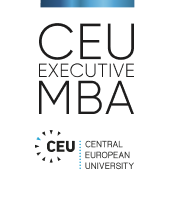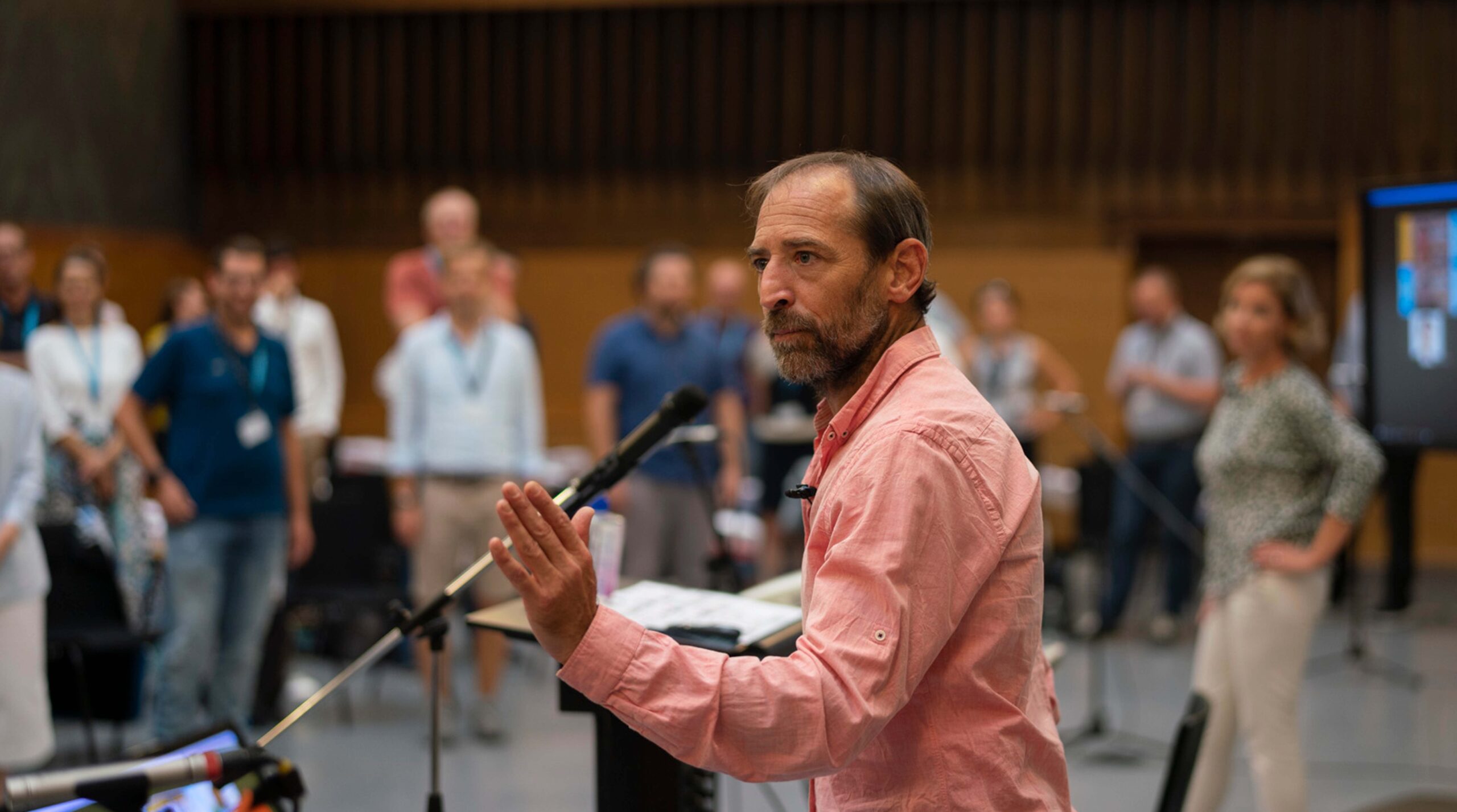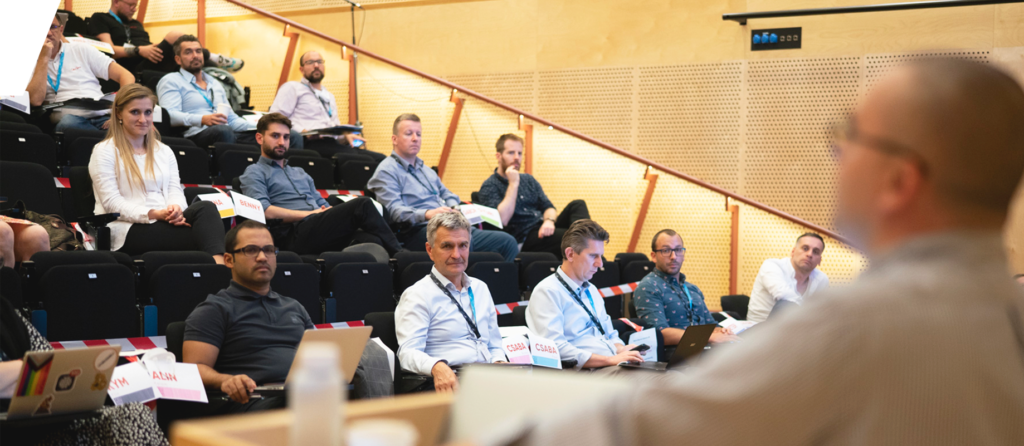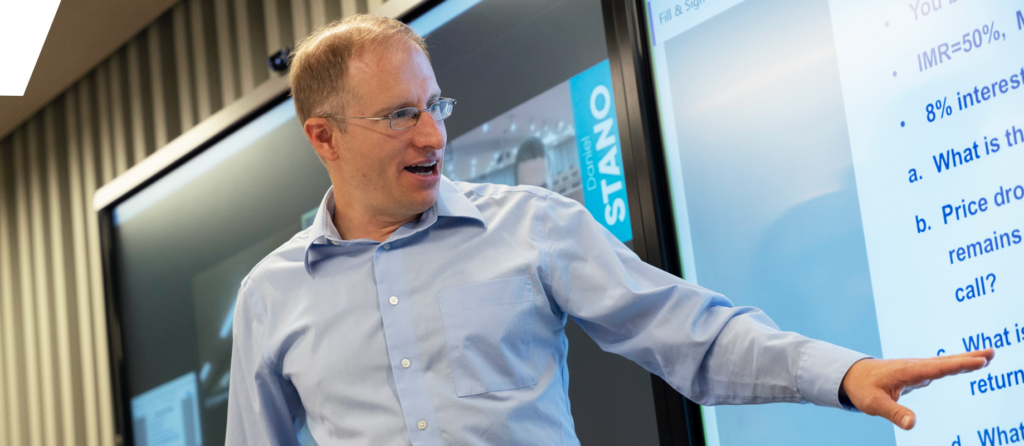
The EMBA for
The open world®
Curriculum in Detail
The CEU Executive MBA (or, formally, the Master of Business Administration in Global Executive Management) is a US/EU graduate degree program accredited with the New York State Department of Education and Austrian Federal Ministry of Education, Science and Research. Learn about our curriculum in detail.

The Program covers 50 US credits (100 ECTS credits) of classes. This translates to more than 2,500 learning hours (classes, group work, individual work) centered around 9 modules, lasting either three-and-half or nine days. The program starts in mid-August and the last on-site residence takes place exactly two years later.
[1] Strategic Fundamentals
[Nine days, Budapest] Most MBAs start with business basics. In line with our strategic ambition, CEU Executive MBA begins instead with a strategic overview. This is delivered in two pillars:
Business Strategy 1, which opens the series of courses focused on bringing your career to the truly strategic level as well as the introductory part of our proprietary CEU Leadership Program, which is focused on good decisions.
The module also includes a highly regarded Control class that takes a distinctively strategic perspective to review concepts and techniques in financial and managerial accounting.
Quite uniquely among EMBA programs, already in the first module, you can get a taste of the unique elective offering of the program, which allows you, of the course of the program to choose from a selection of more than 60 specialized courses. in a variety of business fields.
[2] Data-Driven Decision Making
[Four days, Vienna] During the three-and-half-day (“long weekend”) fall module, executive fellows receive comprehensive training on using big data and artificial intelligence in strategic management. The module also includes the introductory sessions of our Finance course.
The session will be taught in two tracks: the standard track for executive fellows with a diverse range of backgrounds and an advanced track for fellows with significant prior knowledge and experience in finance.
[3] Financial Management
[Four days, Vienna] Building on the foundations of our finance session in the fall, the course covers all the important aspects of corporate finance, including risk management considerations. The session is, again, taught in two tracks.
[4] The Bigger Picture
[Nine days, Vienna] Midway through the program, you are ready to engage in a discussion about the bigger picture. This residency gives participants a signature CEU experience, with four bespoke courses.
The Global Economy in 2030 class involves 10 distinguished CEU faculty members from a variety of disciplines each offering a 120-minute session on key macroeconomic trends that will define the business environment in the next decade.
The Economical Thinking course, taught by an ensemble of CEU’s top economists, introduces EMBAs to the world of rigorous business modeling. While managerial education has traditionally been dominated by inductive thinking (the case method, also widely used in CEU Executive MBA), numerous areas of business recognize the importance of deductive skills (and even “deductive instincts”). The Economical Thinking course helps participants to develop those skills by being confronted with highly influential economic models (from macroeconomics, traditional microeconomics, game theory and behavioral economics) that have changed our understanding of the market and its associated institutions.
The learnings from the Global Economy 2030 and the Economical Thinking courses are put in a strategic context through our signature Nonmarket Strategy class.
Organizations around the world increasingly leverage legal, social, political and policy environment (the nonmarket environment) to enhance their competitive position.
What are the tools and techniques to engage your nonmarket environment, in an effective and ethical way?
The module also includes the concluding part of the Data course.
[6] Leading Change
[Nine days, Budapest] The second August module in our Budapest campus is an opportunity to benefit from the broad elective offering, with each participant able to take four electives from a wide palette of options. It also features the second part of our CEU Leadership Program, which focuses on building and maintaining healthy organizational cultures that facilitate learning, innovation and strategic agility.

[7] Marketing & Consumer Behavior
[Four days, Vienna] Our marketing module has been designed with executive-level participants in mind. It focuses heavily on marketing management and is delivered using examples, cases and exercises from across the spectrum of organizations around the world. The module also features a discussion on CEU’s cutting-edge research on consumer behavior, including predictable irrationalities.
[8] Managing Operations Strategically
[Four days, Vienna] This winter module will help participants rethink operations management in view of their strategic aspirations. It goes well beyond the basics and ventures into new, ‘hot’ topics related to the global supply chain and management of its possible disruptions. Relying extensively on the case method, it helps participants learn to integrate operational considerations in their strategic decision making.
[8] Towards the Future
[Nine days, Vienna] The final Vienna module revolves around three signature courses, all looking towards the future. Business Strategy 2 concludes the topics opened in the first module in Budapest.
Digital Transformation involves a case-based discussion about the ways organizations effectively integrate new technologies into winning competitive strategies.
Entrepreneurship and Innovation is all about fenerating, recognizing and exploiting opportunities; designing new products and services; and taking them to the market are at the very heart of business.
Ambitious entrepreneurs and innovators must compete in a global and highly networked world where multi-player ecosystems fight for survival and success.
This module discusses innovation, entrepreneurship and network building as closely related activities. It helps EMBA participants integrate and test their business knowledge, especially in strategy, marketing, finance and HR. Teaching is entirely practice-oriented: aside from learning about the state of the art, students are asked to generate innovative business ideas, as well as prepare and present business plans.
[9] Good Life
[Nine days, Budapest] The program’s grand finale. During the module, you will be able to interact with more than 200 Executive MBA students from three separate cohorts. You will be able to choose from a wide variety of electives in cross-cohort groups involving first and second year EMBAs. This module will also feature an inspirational conclusion of the CEU Leadership Program focused on the relationship between effective leadership and a good, well-lived life. All these elements will lead towards the program’s Capstone.
[*] Capstone: Open for Change
Instead of a thesis, CEU executive fellows integrate learnings from the program and apply them to a practically relevant project or engagement, designed by the participant themselves under the individual supervision of a CEU faculty member.
Each Capstone includes the Strategic Analysis Component and the Leadership Component.
The former is about applying analytical tools and frameworks acquired during the program to a concrete business problem. The latter gives our participants an opportunity to practice change management and leadership skills and techniques. The Capstone is normally completed during the period of between 3 and 12 months. Some participants choose to pursue an externship in a different organization, sector or function.
In Participants' Words
“This diverse environment promotes creativity and allows for fresh perspectives outside one’s own bubble.”
ALEXANDER BRAUMANN
Class of 2022
Cisco
Vienna, Austria

